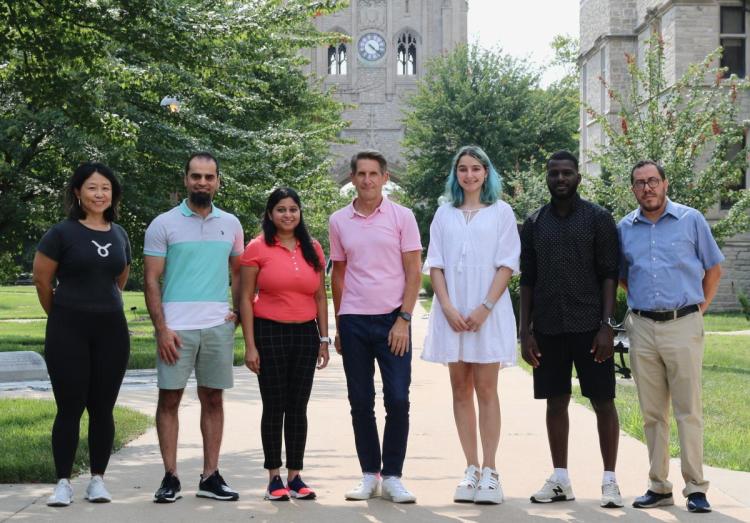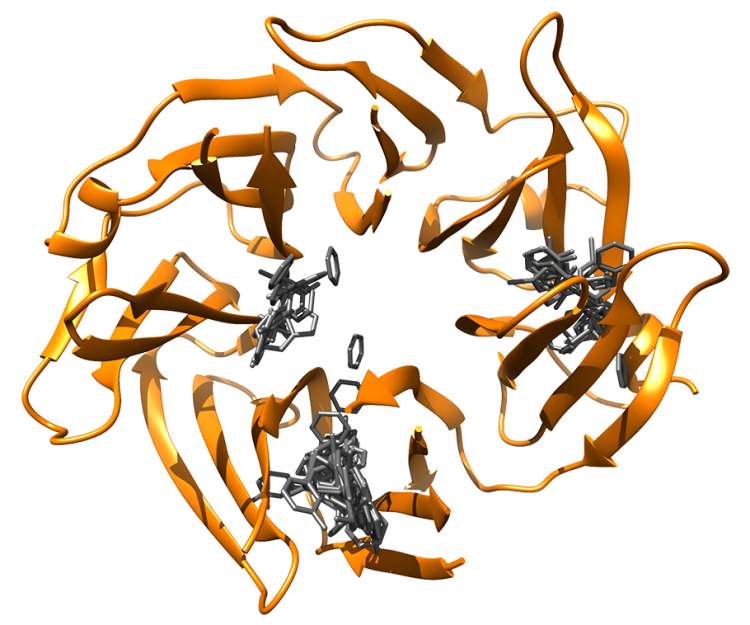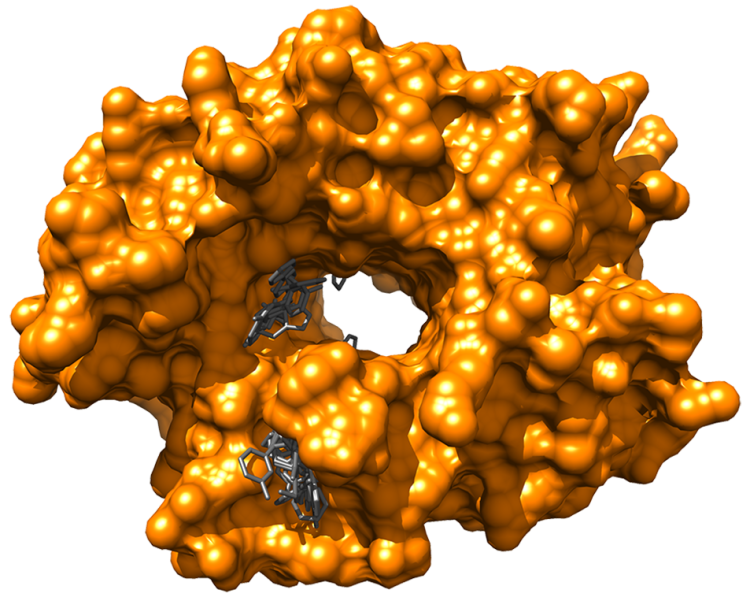
Dmitri Kireev and his research team explore treatments for some of the most perplexing medical challenges.
Updated Sept. 13, 2024
In CACHE Challenge #2 — which focused on SARS-Cov-2, the virus that causes Covid-19 — Kireev and his research team successfully identified molecules that could be used to combat SARS-Cov-2 and likely other coronaviruses.
The number and strength of the molecules they identified ranked Kireev's team among the most successful teams of this CACHE Challenge. Kireev's is the only team ranked as a top performer in CACHE Challenge #2 and in CACHE Challenge #1, announced in January, which focused on Parkinson’s disease.
Four more challenges are underway — focusing on developing treatments to address COVID-19, multiple forms of cancer, and obesity — and a fifth will be announced in early 2025.
A research team led by Mizzou Professor Dmitri Kireev is a forerunner in the challenge to find an effective treatment for Parkinson’s disease. Kireev and several postdoctoral students competed in the first Critical Assessment of Computational Hit-Finding Experiments (CACHE) Challenge hosted by the Structural Genomics Consortium in Toronto. Utilizing FRASE-bot, an artificial intelligence (AI) powered software developed by Kireev’s team, they discovered molecular hits for the most common mutated gene associated with Parkinson’s disease.
To find an effective treatment for Parkinson’s, researchers must first breach what causes the neurogenerative disease - the mutated protein LRRK2. Blocking the protein’s activity with an effective chemical compound, or a hit, can lead to potential treatment. Kireev and his team used FRASE-bot to discover an effective blocker, molecules that might become a potential treatment.

Images courtesy of Dr. Dmitri Kireev
Kireev and his research team utilized FRASE-bot, an artificial intelligence (AI) powered software to discover molecular hits for the most common mutated gene associated with Parkinson’s disease.

“This is an exciting time in Parkinson’s disease research,” said Kireev, a MizzouForward hire who joined the Department of Chemistry in 2022. “What we discovered could be a vital step toward improving the quality of life for those impacted by this disease.” Kireev is working with a Parkinson’s biologist at the University of Lille in France to continue research on the molecular compound, with the long-term goal of producing a Food and Drug Administration-approved therapy.
Although more than 50 academic and private research teams applied to the international CACHE Challenge, only 23 were admitted into the competition. Out of the 1,955 chemical compounds proposed for experimental confirmation, only 73 advanced in the challenge before being whittled down to 17 from seven teams.
Kireev’s research group included three postdoctoral students - two from Mizzou, Xiaowen Wang and Akhila Mettu, and one from The University of North Carolina at Chapel Hill (UNC), where Kireev was a professor at the Eshelman School of Pharmacy and the director of Computational Biophysics and Molecular Design before joining Mizzou.
Kireev received his doctoral degree in chemistry from the Institute of Biologically Active Compounds at the Russian Academy of Sciences. He spent more than ten years as the Head of Drug Design for Sanofi, a pharmaceutical company in France. Kireev developed cancer treatments and novel computational technologies at UNC. His future aspirations include developing a center dedicated to AI-enabled drug discovery.
“Artificial intelligence is rapidly transforming the field of drug discovery, enabling researchers to extract knowledge from massive amounts of data and use it to identify potential drug candidates,” said Kireev, discussing the future of pharmaceutical development. “AI makes the drug discovery process faster, reduces costs, and increases the likelihood of success in developing effective personalized therapeutics.”
Kireev’s current research team competed in the CACHE 2 challenge, this time focused on finding molecular hits for SARS-CoV-2. They identified several active molecules for the virus. The team will learn of their final ranking later this year.
The CACHE-winning technology developed by Kireev’s team is highlighted in the journal Nature Communications.